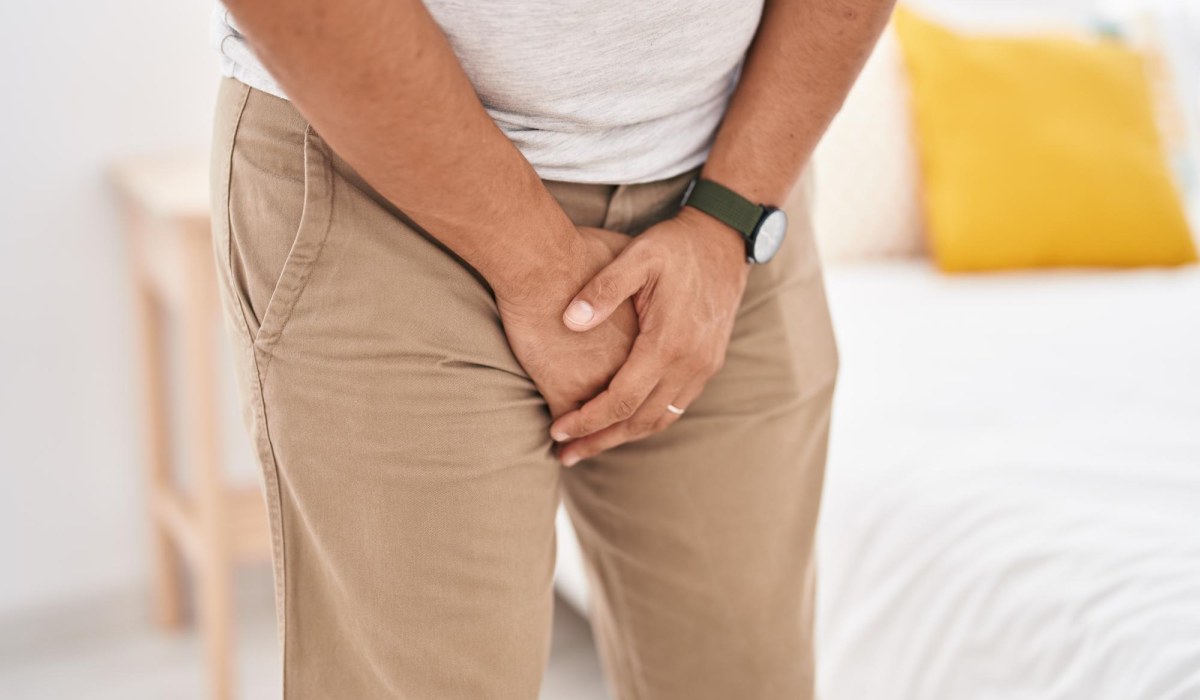Are you aware of how your day-to-day habits might be influencing your prostate gland health? Maybe you feel some discomfort but aren’t sure what it means. Understanding how lifestyle choices impact conditions like prostatitis can help you take control. Prostatitis is an often overlooked but significant condition affecting many men worldwide. This guide aims to enlighten you on signs to watch out for, the role of diet and exercise, and how to manage stress effectively. Let’s empower you to make informed lifestyle changes for better prostate gland health.
Introduction
The prostate gland plays a crucial role in men’s health. It’s a small organ, about the size of a walnut, but it’s responsible for producing essential fluids that nourish and protect sperm. However, like any part of the body, it can face several issues. One of these is prostatitis, a condition causing inflammation in the prostate gland. Common prostate issues include benign enlargement, prostate cancer, and prostatitis. Each presents unique symptoms, making it vital to understand them. How you eat, move, and handle stress significantly impacts your prostate health. This guide aims to equip you with the knowledge to make informed choices and improvements. By learning how lifestyle affects the prostate gland, you can take steps towards better health and educate those around you.
Understanding Prostatitis: Symptoms and Impact
Prostatitis is an inflammation of the prostate gland. There are two main types: acute, which is sudden and severe, and chronic, lasting longer and possibly recurrent. Common prostatitis symptoms include pain in the pelvic area, issues with urination, and discomfort during ejaculation. If you experience any of these, it’s crucial to see a healthcare provider promptly. Unlike prostate cancer, prostatitis is not life-threatening but can greatly affect quality of life. It can lead to physical discomfort and may also cause emotional and psychological stress due to ongoing pain and discomfort. This makes understanding and managing prostatitis symptoms even more essential for maintaining a balanced and healthy life.
Diet Do’s and Don’ts for Prostate Health
What you eat plays a role in prostate health. Including foods rich in nutrients like zinc, selenium, and omega-3 fatty acids can be beneficial.
- Do’s:
- Include tomatoes and broccoli: These are known for compounds that support the prostate gland.
- Eat fish rich in omega-3s like salmon: They help reduce inflammation.
- Snack on nuts and seeds: They offer beneficial fats and vital nutrients.
- Don’ts:
- Limit consumption of red meat: Excessive amounts could contribute to inflammation.
- Be cautious with processed foods: They often contain unhealthy fats.
Alcohol and caffeine can exacerbate prostatitis symptoms. Moderation is key. Dietary supplements are sometimes touted for their benefits, but it’s vital to discuss these with a healthcare provider first. The healthiest approach is a balanced diet focused on whole foods. Planning meals that consider these points can help you adopt a heart-healthy and prostate-friendly diet seamlessly into your routine.
Exercise and Prostatitis: Movement for Better Health
Regular physical activity is essential for a healthy prostate gland. Exercise can reduce prostatitis symptoms like pelvic pain, improve mood, and enhance overall health. It also lowers the risk of prostate cancer and prostatitis. Including workouts like brisk walking, swimming, and yoga can be beneficial. Aiming for at least 150 minutes of moderate exercise weekly is a good target. Consistency is what provides the best results. Making exercise part of your routine ensures continued benefits. You don’t have to hit the gym every day, but staying active by simple means like stretching or walking pays off in the long run.
Managing Stress for Optimal Prostate Function
Stress is a sneaky factor affecting prostate health. Long-term stress can aggravate prostatitis symptoms. Effective stress management is crucial. Simple strategies like deep breathing, meditation, or yoga can lower stress levels. Building a routine that includes time to unwind is beneficial. Even if your schedule is tight, find small pockets of time to relax. For instance, short meditation breaks or moments of mindfulness can fit into any day. These changes not only help manage prostatitis but promote overall well-being.
Regular Check-ups and Early Detection
Routine check-ups are vital for maintaining prostate health. Regular medical examinations allow early detection and better management of prostatitis, prostate cancer, and other issues. Be observant for any symptoms like difficulty urinating or pelvic pain, as they need immediate attention. During check-ups, doctors assess your health status, offer advice, and perform necessary tests to ensure all is well. In countries like India, cultural hesitance may prevent discussions about prostate issues. Breaking this stigma through awareness is essential. Encourage open consultations and regular health assessments to take proactive control over your prostate wellness.
Conclusion: Taking Charge of Your Prostate Health
Adopting a healthier lifestyle is key to supporting your prostate gland health. Even small adjustments in diet, exercise, and stress management can significantly impact your well-being. Gradually introducing these changes makes it easier to stick with them. It’s essential to understand the relationship between lifestyle and prostate wellness. Regular check-ups with your doctor are important to catch any issues early, allowing for timely intervention. Remember, being proactive about your health empowers you to lead a happier, healthier life. Make informed decisions today for a better tomorrow. Don’t wait—start taking steps for healthier prostate functions and comfort.**

